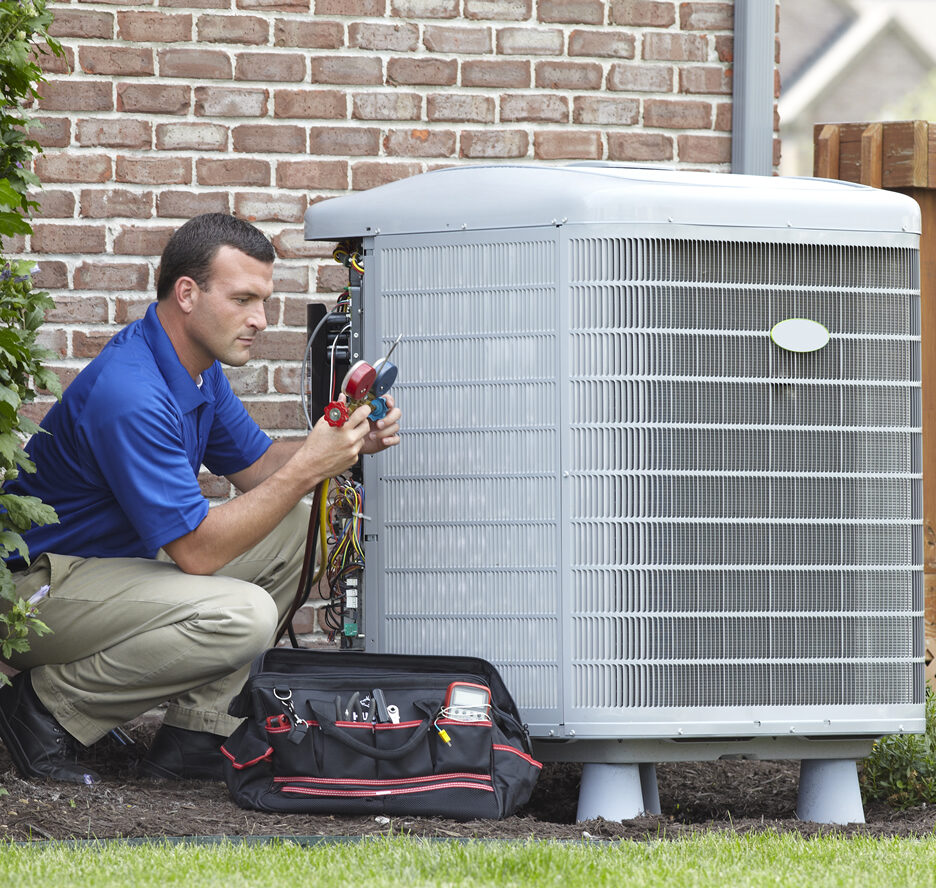Things to Know for Homeowners About Air Conditioning

Things to Know for Homeowners About Air Conditioning – Air conditioner (AC) is one of the most essential household devices in maintaining comfort indoors. However, many homeowners may not fully grasp how their AC operates. This article will elucidate the basic principles and crucial concepts that homeowners need to know about the functioning of an AC.
1. Heat Exchange
Fundamentally, the AC operates on the principle of heat exchange between indoor and outdoor air. This is accomplished through a cycle involving key components such as the evaporator, condenser, compressor, and refrigerant.
Evaporator: This is the indoor component that extracts heat from the indoor air. The cooling fluid (usually refrigerant) evaporates here, absorbing heat from the air and making it cold.
Compressor: The refrigerant that evaporates in the evaporator is then compressed into hot gas by the compressor. This increases the pressure and temperature of the refrigerant.
Condenser: The hot refrigerant then flows to the condenser, located outside the house. Here, heat is released into the outdoor air, and the refrigerant is condensed back into a liquid.
2. Air Circulation
The AC also plays a role in circulating air indoors. This helps maintain indoor air quality and evens out temperatures.
Fan: The AC is equipped with a fan that assists in circulating cool air throughout the entire room. It also helps mix indoor air to avoid ‘hot spots’ and ‘cold spots.’
Filter: The AC has a filter that helps screen dust particles, allergens, and other pollutants from indoor air. Regular filter maintenance is crucial for preserving air quality.
3. Temperature Control
Homeowners have control over the AC temperature settings. The desired temperature can be set on the thermostat, triggering the AC to turn on or off based on the current room temperature. This allows homeowners to achieve the desired comfort.
4. Importance of Maintenance
For the AC to function optimally, regular maintenance is crucial. This includes cleaning filters, periodic system checks by professionals, and maintaining key components.
5. Energy Efficiency
Energy efficiency is a crucial factor in AC selection. A more efficient AC will save money in the long run and have a lower environmental impact.
6. Proper Sizing
Choosing an AC with the right capacity for the room size is crucial. An oversized AC will run less frequently and be less efficient, while an undersized AC might not be able to maintain a comfortable temperature.
7. Wise Usage
Homeowners also need to understand wise usage. Setting temperatures judiciously, avoiding frequent opening of doors or windows, and ensuring proper home insulation are ways to enhance AC efficiency.
In order to maximize the benefits of the AC and extend its lifespan, homeowners need to have a better understanding of how this device works. By comprehending these basic principles, homeowners can use their AC more wisely and efficiently maintain comfort at home.
visit: service ac surabaya barat
AC Not Cold: Common Causes and How to Fix It
Air conditioners (AC) not producing cold air are a common issue in air cooling systems. In this article, we will discuss the common causes of this problem and how to address an AC that is not cooling.
Common Causes of Non-Cooling AC
Dirty Filter: One of the most common causes is a dirty or clogged air filter. The filter’s function is to screen dust and debris from incoming air, but if it’s too dirty, the airflow is restricted, leading to decreased AC performance.
Low or Leaking Refrigerant: Refrigerant is a liquid that undergoes a cycle to remove heat from indoor air. If the refrigerant is low or there’s a leak in the system, the AC won’t effectively produce cold air.
Faulty Fan: The fan in the AC unit is responsible for circulating cold air into the room. If the fan is damaged or not functioning properly, cold air won’t be distributed correctly.
Blocked Condenser: The condenser located outside the house should be clean and free from dirt or debris. If the condenser is blocked, heat cannot be released effectively, causing the AC to operate less efficiently.
Damaged Compressor: The compressor is responsible for compressing the refrigerant and increasing pressure and temperature. If the compressor is damaged, the AC cannot undergo the cooling cycle properly.
How to Fix a Non-Cooling AC
Clean or Replace the Filter: Check the air filter and clean or replace it as needed. A clean filter improves airflow and AC performance.
Inspect Refrigerant: If you suspect a refrigerant issue, it’s advisable to call a professional AC technician to check. They can recharge refrigerant or repair leaks if necessary.
Check the Fan: Ensure the fan in the AC unit is working properly. If the fan is damaged, replace or repair it promptly.
Clean the Condenser: Turn off the AC and make sure the condenser outside is free from dirt or debris. You can gently clean it using a brush or water spray.
Inspect the Compressor: If you suspect a compressor problem, call a professional AC technician. Damaged compressors usually require expert repair or replacement.
Call a Professional Technician: If you’re unsure of the problem’s cause or if you’ve tried the above steps without success, promptly call a professional AC technician. They have the knowledge and tools to diagnose and fix issues correctly.
To prevent future non-cooling AC problems, perform routine maintenance such as cleaning filters, checking the condenser, and keeping your AC system in good condition. With proper maintenance, you can ensure that your AC will work efficiently and provide comfortable cool air in your home.
post by: jasa review produk











